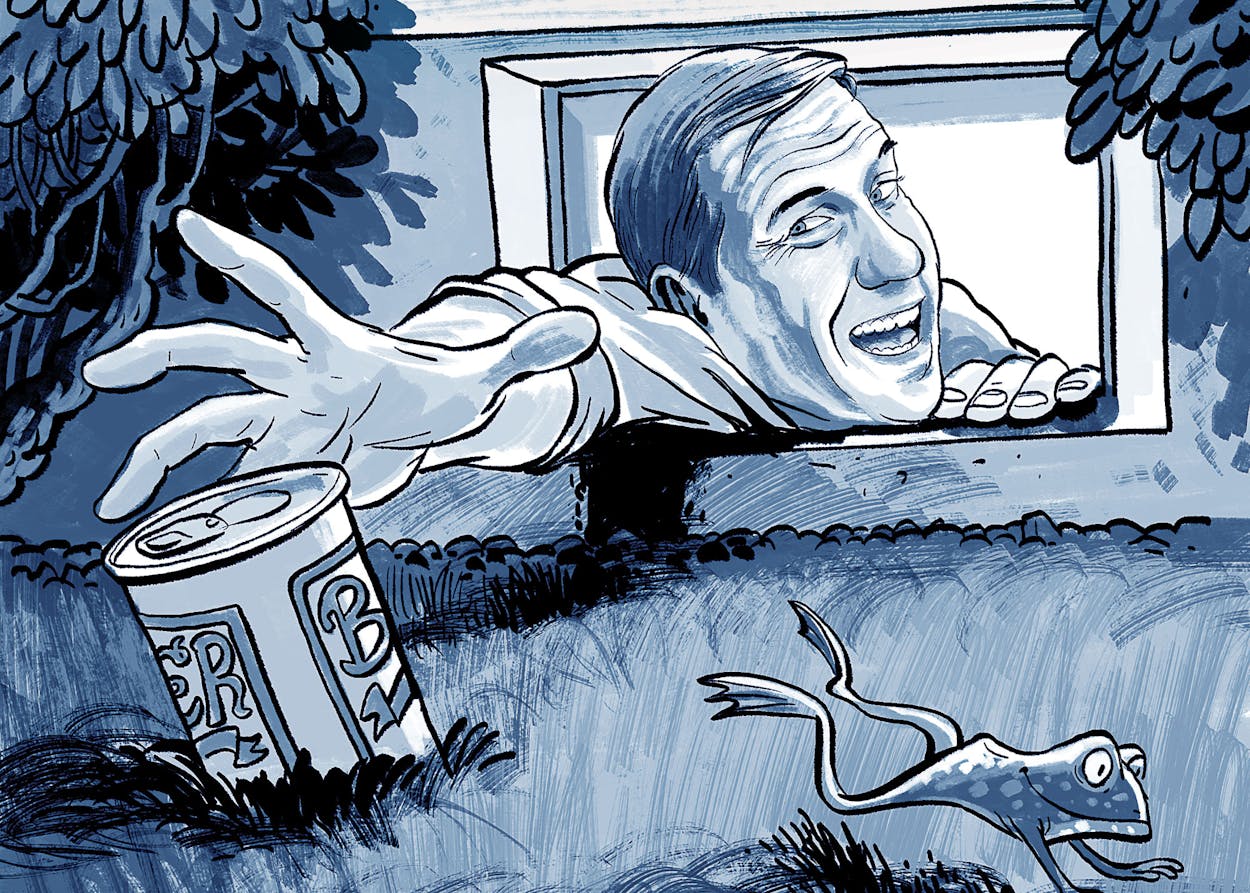Q: I’m a transplant to Texas from the country’s northern regions, and one thing that has struck me since I got here is that there are virtually no basements in people’s houses. As someone who did a lot of growing up in basements—playing air hockey, watching Fast Times at Ridgemont High a few hundred times, maybe engaging in some occasional necking, etc.—this seems like a major disadvantage of living in Texas. Can you explain to me why Texas is a basementless state?
Jeff Fish, Austin
A: So, if the Texanist is hearing you correctly, what you are saying is that one of the big pluses to living in northern climes is an abundance of dank, windowless, subterranean rooms? And that not having such spaces in homes here in Texas is somehow a drawback to the growing-up process? The Texanist is scratching his head.
It is true that basements in Texas’s residential structures are a rarity. The Texanist specifically highlights “residential” because basements are not uncommon in larger buildings. The Capitol, in Austin, has a basement; the nearby Goodman Building, a stone’s throw from the statehouse’s west entrance, has a basement that houses an historic bar at which the Texanist likes to wet his whistle now and then; and the Alamo, despite what you may have learned from Pee-wee’s Big Adventure, has two basements. In fact, almost all the big Texas buildings the Texanist can think of, both historic and new, have basements. But you are absolutely right that few houses in Texas are similarly equipped.
This is, to answer your main question, due to a variety of factors. In some parts of the state the water table is too near the surface of the ground, making leaking and flooding an issue. In other areas the bedrock is too near the surface, making digging a basement difficult and costly. In still other areas, what’s known as “expansive” soils—clay and/or shale that shifts around in excessively wet and excessively dry conditions, which is to say normal conditions in Texas—make a basement unworkable. And then there’s the matter of the frost line, the depth at which water in the ground freezes in wintertime, which is pretty much nonexistent here in largely subtropical Texas but is a big deal in the frosty north. See, a foundation set in ground that freezes and thaws can move around, which is not a good thing. Thus, in your native land, Mr. Fish, foundations have to be constructed below the surface of the ground—sometimes many feet below the surface. And since the builder of a home is going to be burrowing down anyway, why not add a basement? In Texas, there exists no such imperative.
Another reason we don’t have basements but natural-born Yankees such as yourself do: In much of Texas we’ve got a superabundance of land and a relative scarcity of zoning regulations; in the north it’s exactly the opposite. So where builders up yonder who want to add additional square footage to a house feel compelled to dig down, here we’re usually happy to opt for the easier path: building up and/or out.
Now, let’s get back to your theory about basements and “growing up” for just a minute. Until receiving your letter, the Texanist had never considered the cultural importance of basements in the development and maturation of young Northerners. He’d only imagined them as musty spots filled with life’s accumulated detritus and had no idea that they could also be filled with fond memories, having served as fertile beds for northern adolescents in the bloom of “growing up.”
Of course, as you point out, basements were not really an option for the Texanist and his cohort. So, like most young folks in the Lone Star State, the Texanist did his “growing up” aboveground. Thinking back, he played his air hockey at Skate Haven, watched Fast Times at Ridgemont High at the theater, and engaged in bouts of necking, etc., whenever and wherever he could.
Additionally, the Texanist fished, gigged frogs, caught turtles and snakes, shot his BB gun, smoked his grapevine, glimpsed his soggy old men’s lifestyle and entertainment magazines, experimented with smokeless tobacco, drank his garage refrigerator-appropriated beer, and expanded his dirty-word vocabulary on the banks of the beautiful and storied Bird Creek in his mostly basementless hometown of Temple. Which is to say he did all of those things outdoors, which is really how it ought to be.
Have a question for the Texanist? He’s always available here. Be sure to tell him where you’re from.
A version of this is published in the July 2018 issue.
- More About:
- The Texanist
- Austin






